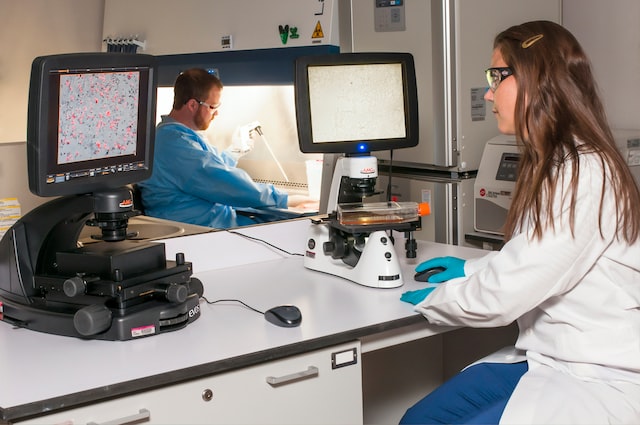Improvements in DNA technology have had a profound impact on the medical industry. DNA technology has allowed for the sequencing, manipulation, and analysis of genetic material, which has led to the development of novel diagnostics and therapeutics. Thus, there is an increasing need for specialists who have knowledge in both DNA technology and medicine. In this piece, we’ll take a look at some of the exciting job prospects at the crossroads of DNA science and healthcare.
1. Counselors in Genetics
Genetic counselors are medical experts that educate patients and their families about the potential outcomes of genetic testing so that they may make well-informed treatment choices. They are often genetically educated professionals who are able to translate and explain complicated genetic data to patients.
There is a critical need for genetic counselors in the growing fields of DNA medicine and technology. They collaborate closely with doctors and patients to disseminate information about genetic testing and illnesses. The ethical and prudent use of new genetic testing technology is another important function played by genetic counselors.
2. Bioinformatician
Biological data, such as DNA sequences, may be analyzed and understood with the help of bioinformaticians. They usually know something about biology and genetics as well as having a background in computer science, statistics, or a similar discipline.
Bioinformaticians are crucial in the fields of DNA technology and medicine, where they analyze and interpret genetic data. To aid in the detection of genetic mutations and other patterns in DNA sequences that may be connected with illness, they use algorithms and software tools. Furthermore, they’re trying to find ways to combine genetic and clinical data to better serve individual patients with tailored treatment plans.
3. Professional Who Specializes in Medical Genetics
A medical geneticist is a doctor who focuses on identifying and treating diseases with a genetic basis. They specialize in the diagnosis and treatment of genetic disorders and usually have a background in genetics or a closely related discipline.
When it comes to treating patients with genetic problems, medical geneticists collaborate closely with other members of the healthcare team. They might also be involved in studies to find cures for hereditary disorders. New methods of genetic testing and the responsible use of genetic data in healthcare rely heavily on the work of medical geneticists.
4. Pharmacogeneticist
The field of research known as pharmacogenetics examines how a person’s genes influence their reactions to certain medications. Professionals in the field of pharmacogenetics analyze patient genomic information to create individualized treatment programs.
Pharmacogeneticists play a crucial role in the advancement of DNA technology and medicine by facilitating the creation of individualized therapeutics for each patient. They collaborate closely with other medical professionals to provide patients the best possible care.
5. Genome Clinician
Specialists in clinical genetics are doctors who are trained to identify and treat illnesses with a hereditary component. Together, they aid patients in obtaining genetic testing, counseling, and therapy.
When it comes to diagnosing and treating genetic disorders, the expertise of clinical geneticists is invaluable to the area of DNA technology and medicine. They collaborate with other medical professionals to provide individualized treatment regimens for patients. Researchers and clinical geneticists work together to find cures for genetic disorders.
Conclusion
Many job openings exist at the interface of DNA technology and medicine. Several professions, from genetic counselors and pharmacogeneticists to clinical geneticists and genomics researchers, need knowledge of both DNA technology and medicine. Professionals able to combine genetic and clinical data will be in high demand as the need for customized treatment and precision healthcare rises. A job at the intersection of DNA technology and medicine offers exciting opportunities to have a positive impact on people’s lives while also advancing the profession of healthcare.







